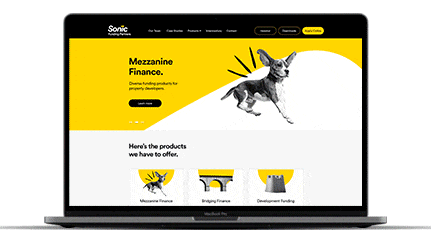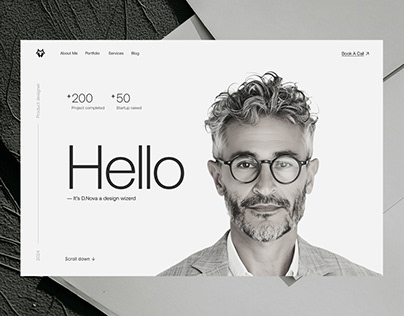Top Tips for Producing an Impactful Internet Site Design That Transforms
In today's digital landscape, the relevance of an impactful internet site style can not be overstated, especially when it comes to transforming site visitors into clients. To accomplish this, one have to think about a range of factors, consisting of recognizing the target market, prioritizing user experience, and maximizing for mobile systems. Furthermore, the strategic usage of compelling call-to-actions and a distinct aesthetic hierarchy plays an important role in assisting customers through their trip. As we check out these necessary aspects, it comes to be noticeable that the success of your website depends upon even more than simply looks; it calls for a thoughtful approach to design and capability.

Understand Your Target Target Market
Understanding your target audience is fundamental to reliable website layout, as it prepares for producing an appealing individual experience. Identifying that your customers are, including their demographics, choices, and habits, enables designers to customize the web site's material, design, and capability to satisfy certain needs.
Conducting thorough market study is essential in this process. Surveys, interviews, and analytics can give useful understandings right into individual expectations and pain factors. By compiling this information, designers can develop user characters that stand for different sectors of the target market, making certain that design decisions are notified and appropriate.
In addition, understanding the target audience assists in selecting proper style aspects such as color design, typography, and imagery that resonate with customers. A web site that talks straight to its audience fosters a sense of connection and depend on, encouraging longer gos to and greater conversion prices.
Ultimately, a user-centered approach to website style not just enhances user satisfaction however also supports company objectives by driving engagement and loyalty. By focusing on the demands and choices of the target audience, an internet site can successfully offer its function and attain preferred end results.
Prioritize User Experience
To boost the total efficiency of an internet site, prioritizing customer experience (UX) is essential (Website Design). A well-designed UX ensures that visitors can browse the website easily, find info promptly, and engage with material meaningfully. This brings about raised individual fulfillment and higher conversion rates
Begin by applying user-friendly navigating. Menus must be rationally structured, permitting users to find essential areas of the site with very little initiative. Consistency in design components, such as color schemes and typefaces, fosters familiarity, which is crucial for preserving individual interaction.
Furthermore, consider the loading speed of your website. A hold-up of just a couple of secs can bring about significant drop-offs, as customers are much less most likely to wait on a slow-loading page. Improving photos and optimizing code can enhance efficiency and retain site visitors.
Moreover, clarity in material discussion is crucial. Usage succinct, interesting language and separate text with visuals to improve readability. By focusing on individual experience, you not only develop a much more pleasurable atmosphere for site visitors but additionally strengthen your brand name's reliability. Inevitably, a concentrate on UX is a financial investment in the long-term success of your web site.
Enhance for Mobile Tools
Enhancing for smart phones is essential in today's electronic landscape, where an enhancing number of customers gain access to websites with mobile phones and tablets. A mobile-friendly layout not only improves user experience however additionally plays a substantial function in enhancing online search engine rankings. To attain this, it is necessary to take on a responsive layout that automatically gets used to different display sizes and positionings.

Loading speed is an additional critical aspect; mobile customers are generally much less patient and anticipate quick accessibility to info. By prioritizing mobile optimization, you guarantee that your web site stays competitive and properly engages a wider target market.
Use Compelling Call-to-Actions
A web site's effectiveness commonly rests on its capability to assist site visitors towards wanted actions, making compelling call-to-actions (CTAs) vital parts of layout. CTAs work as the critical factors that route users to engage with the site, whether that implies buying, registering for an e-newsletter, or downloading and install a source.
To create effective CTAs, quality is critical. Use concise language that clearly communicates the action you want the user to take. Expressions such as "Get going," "Register Free," or "Store Now" not just communicate seriousness however likewise get rid of uncertainty. The placement of CTAs is just as essential; they Website ought to be tactically positioned throughout the website to ensure they are easily noticeable, specifically in high-traffic locations.
Additionally, the style of CTAs should stand apart without being noticeable. Employ contrasting shades and clear font styles to ensure they capture focus. Furthermore, think about using directional signs, such as arrows or photos, to assist individuals toward these switches. By focusing on these elements, organizations can dramatically improve user involvement, driving conversions and eventually achieving their internet site's objectives.
Concentrate On Visual Power Structure
Efficient web site style relies greatly on a well-structured aesthetic hierarchy that guides users with content seamlessly. By organizing components in a manner that focuses on details, designers can improve customer experience and assist in decision-making. This entails utilizing size, shade, contrast, and spacing tactically to attract attention to the most critical components of a page.
Making use of bigger fonts for headings and subheadings establishes a clear difference in between various sections, permitting individuals to scan material effortlessly. Additionally, utilizing different shades for switches and calls-to-action can capture individual interest and urge interaction. Whitespace is one more essential component; it avoids mess and makes it possible for customers to focus on key messages without diversions.
Pictures and graphics need to enhance the message while additionally adhering to the established hierarchy, reinforcing the general message (Website Design). Consistency in style elements, such as color pattern and typography, further strengthens the visual hierarchy, making navigation intuitive

Final Thought
To conclude, effective website design necessitates an extensive understanding of the target audience, prioritization of user experience, and mobile optimization. The strategic use compelling call-to-actions and a well-defined aesthetic power structure additionally improves user involvement. By implementing these concepts, internet sites can accomplish higher conversion prices, making certain that style aspects not only bring in visitors but also facilitate smooth navigation and communication. Eventually, a well-executed site layout acts as an important component in driving customer actions and achieving organization purposes.